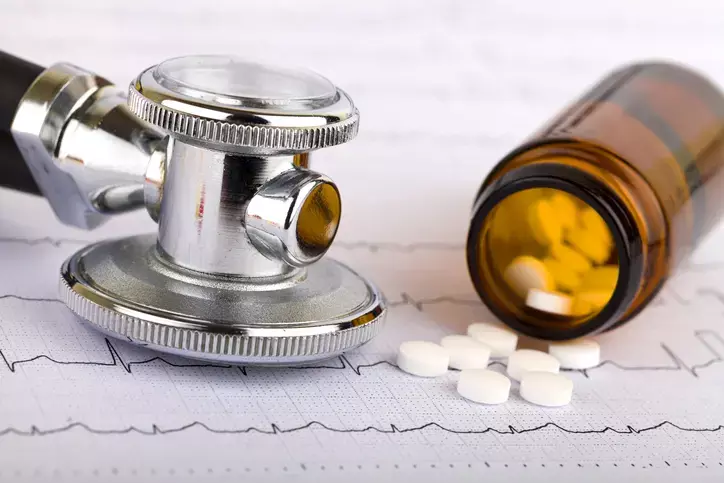- Home
- Medical news & Guidelines
- Anesthesiology
- Cardiology and CTVS
- Critical Care
- Dentistry
- Dermatology
- Diabetes and Endocrinology
- ENT
- Gastroenterology
- Medicine
- Nephrology
- Neurology
- Obstretics-Gynaecology
- Oncology
- Ophthalmology
- Orthopaedics
- Pediatrics-Neonatology
- Psychiatry
- Pulmonology
- Radiology
- Surgery
- Urology
- Laboratory Medicine
- Diet
- Nursing
- Paramedical
- Physiotherapy
- Health news
- Fact Check
- Bone Health Fact Check
- Brain Health Fact Check
- Cancer Related Fact Check
- Child Care Fact Check
- Dental and oral health fact check
- Diabetes and metabolic health fact check
- Diet and Nutrition Fact Check
- Eye and ENT Care Fact Check
- Fitness fact check
- Gut health fact check
- Heart health fact check
- Kidney health fact check
- Medical education fact check
- Men's health fact check
- Respiratory fact check
- Skin and hair care fact check
- Vaccine and Immunization fact check
- Women's health fact check
- AYUSH
- State News
- Andaman and Nicobar Islands
- Andhra Pradesh
- Arunachal Pradesh
- Assam
- Bihar
- Chandigarh
- Chattisgarh
- Dadra and Nagar Haveli
- Daman and Diu
- Delhi
- Goa
- Gujarat
- Haryana
- Himachal Pradesh
- Jammu & Kashmir
- Jharkhand
- Karnataka
- Kerala
- Ladakh
- Lakshadweep
- Madhya Pradesh
- Maharashtra
- Manipur
- Meghalaya
- Mizoram
- Nagaland
- Odisha
- Puducherry
- Punjab
- Rajasthan
- Sikkim
- Tamil Nadu
- Telangana
- Tripura
- Uttar Pradesh
- Uttrakhand
- West Bengal
- Medical Education
- Industry
DOACs Better than Warfarin in Patients with Valvular Atrial Fibrillation, finds study

Atrial fibrillation (AF) affects 5.2 million Americans, results in 158 000 deaths annually, and increases the risk for stroke. Although warfarin has been the mainstay therapy to prevent stroke, drawbacks include a narrow therapeutic window, dose-response variability, and many interactions with drugs and food.
In a recent study, researchers have found that direct oral anticoagulants (DOACs) reduces the risk of stroke, embolism and bleeding better than warfarin among patients with valvular Atrial Fibrillation (AF). The research has been published today (30 March 2021) in the Annals of Internal Medicine.
Valvular heart disease (VHD) and AF commonly coexist. Unlike warfarin, DOACs have relatively short half-lives, no drug-food interactions, fewer drug-drug interactions, and convenient dosing and do not require routine laboratory monitoring. These advantages have led to increased use of DOACs in place of warfarin. However, evidence about their effectiveness and safety in patients with valvular atrial fibrillation (AF) remains limited. Therefore, Dr Ghadeer K. Dawwas, MSc, MBA, PhD and his team conducted a study to assess the effectiveness and safety of DOACs compared with warfarin in patients with valvular AF.
It was a new-user retrospective propensity score-matched cohort study. Researchers included a total of 56 336 patients with valvular AF who were newly prescribed DOACs or warfarin. They evaluated the U.S.-based commercial health care database from 1 January 2010 to 30 June 2019. The major efficacy outcome assessed was a composite of ischemic stroke or systemic embolism. The major safety outcome assessed was a composite of intracranial or gastrointestinal bleeding.
Key findings of the study were:
- Upon analysis, the researchers found that the use of DOACs (vs warfarin) was associated with a lower risk for ischemic stroke or systemic embolism (hazard ratio [HR], 0.64 ) and major bleeding events (HR, 0.67).
- They noted that the safety and efficacy outcomes remained consistent for apixaban (HRs, 0.54 and 0.5, respectively) and for rivaroxaban it was (HRs, 0.74 and 0.87, respectively).
- However, with dabigatran, they noted that the results were consistent for the major bleeding outcome (HR, 0.81) but not for effectiveness (HR, 1.03).
The authors concluded, "In this comparative effectiveness study using practice-based claims data, patients with valvular AF who were new users of DOACs had lower risks for ischemic stroke or systemic embolism and major bleeding than new users of warfarin. These data may be used to guide risk-benefit discussions regarding anticoagulant choices for patients with valvular AF."
For further information:
https://www.acpjournals.org/doi/10.7326/M20-6194
Medical Dialogues Bureau consists of a team of passionate medical/scientific writers, led by doctors and healthcare researchers. Our team efforts to bring you updated and timely news about the important happenings of the medical and healthcare sector. Our editorial team can be reached at editorial@medicaldialogues.in.
Dr Kamal Kant Kohli-MBBS, DTCD- a chest specialist with more than 30 years of practice and a flair for writing clinical articles, Dr Kamal Kant Kohli joined Medical Dialogues as a Chief Editor of Medical News. Besides writing articles, as an editor, he proofreads and verifies all the medical content published on Medical Dialogues including those coming from journals, studies,medical conferences,guidelines etc. Email: drkohli@medicaldialogues.in. Contact no. 011-43720751


